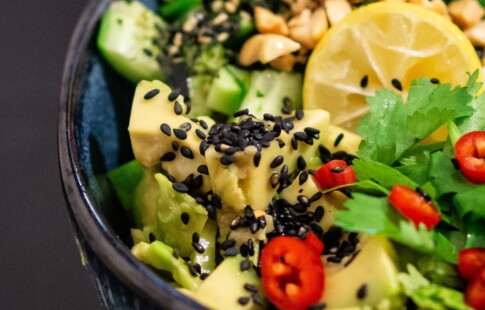
How to Avoid Falling for the Olive Oil Scam
We are reader-supported. When you buy through links on our site, we may earn affiliate commission.
Visit any supermarket today and you’ll likely find countless selections of gold-colored olive oils in fancy bottles, many of them labeled ‘Italian extra-virgin.’ However, you could fall for the infamous olive oil scam if you’re not careful.
Extra virgin olive oil (EVOO) is one of the most commonly defrauded food products for all its health benefits and superior quality. It is often marketed as the highest grade but is often considerably less so in reality. Explore the intricacies of this food fraud and how to avoid falling for it.
What’s the Olive Oil Scam?
It’s a broad term for the various fraudulent practices in the olive oil industry, where lower-quality or adulterated oils are passed off as high-quality EVOO. Considered the best quality and most flavorful type of olive oil, EVOO is extracted from olives using natural methods without using heat or chemicals.
As this type of oil retails for around $30 a liter, falling for the scam means paying premium prices for a non-premium product.
Fraudulent practices in this line of business are nothing new. In November 2023, law enforcement agencies in Spain and Italy seized roughly 68,000 gallons of olive oil declared unfit for consumption. There have been similar reports over the last decade.
What Are Some Examples?
The most common type of olive oil scam is adulteration, which involves mixing Italian extra-virgin with lower-quality oils, such as refined olive oil or other vegetable oils like sunflower or canola oil. This dilution reduces the overall quality and health benefits of the olive oil. Other examples include:
- Mislabeling: Falsely labeling oils as “extra virgin” when they do not meet the necessary standards. This shouldn’t be a surprise, considering mislabeling is a common food fraud in agri-food markets, costing American consumers at least $250 million over the last 20 years.
- Counterfeiting: Producing fake or counterfeit versions of well-known and reputable olive oil brands. These fake products may imitate the packaging and labeling of popular brands.
- Misleading origin claims: Providing inaccurate information about the geographic origin of the olive oil. True EVOO comes exclusively from the first pressing of the olive harvest in Italy. Some products claim to be high-quality olive oil but come from North Africa and around the Mediterranean.
- Deceptive marketing: Using misleading marketing tactics, such as false health claims or images of picturesque olive groves, to create a high quality and authenticity perception.
How Can You Tell Real Extra Virgin Olive Oil?
The best way to avoid fake olive oil is to know how to identify real EVOO. Here’s how to ensure you get the right stuff when you buy olive oil.
Skip the Large Brands
As much as possible, avoid going for the large brands you would normally find in the grocery store. It’s usually more difficult to establish their authenticity. It’s best to get your olive oil from specialty stores, especially those that let you sample the product before purchasing.
Check the Color and Flavor
Real olive oil comes in all shades, from greenish to pale straw. The standout feature is the flavor profile, which starts with a fresh and fruity aroma. Oil with no scent is a huge red flag as it could be seed oil packaged and marketed as EVOO.
Make Sure the Label Says “Extra Virgin”
You always want to get the extra virgin olive oil — avoid terms like “pure,” “light,” or “olive pomace oil,” as these are the usual descriptors for chemically refined products. Additionally, just because the label says it was “packed” or “bottled” in Italy doesn’t mean the oil was produced there. In reality, Italy only produces 15% of the world’s olive oil, so check for the specific manufacturing location before buying.
Look at the Harvest Date
Check the bottle’s label for a “harvest date” or “batch date” and ensure it’s within 18 months. That gives you an idea of the oil’s freshness. If there’s only an expiration date on the bottle, chances are it was produced or bottled years before.
Find the USDA Organic Seal
This certification from the U.S. Department of Agriculture means that at least 95% of the oil is certified organic. The seal also assures that the products were grown without pesticides or synthetic fertilizers. Conversely, check for the International Olive Council seal, indicating the oil has met specific quality standards.
Check the Estate Name
Small olive oil producers often include the name of their estate on the bottle. Don’t worry if you don’t recognize the brand. Just the fact there’s an estate name on the bottle or label is a sign of quality.
What are the Enemies of Olive Oil?
Even after buying original EVOO, the quality can quickly deteriorate when affected by its three main enemies:
- Light: Ultraviolet rays from sunlight can cause the oil to develop off-flavors, which is why quality extra virgin olive oil often comes in dark glass bottles.
- Heat: Olive oil is sensitive to heat and exposure to high temperatures can lead to the breakdown of its chemical components. Remember to store your oil in a cool, dark place to preserve its flavor, aroma and nutritional benefits.
- Air: Exposure to air can lead to oxidation, a process that can cause the oil to become rancid and lose its freshness. Seal olive oil containers tightly and avoid leaving them open for extended periods.
The Olive Oil Scam Will Likely Continue
Severe global shortage will likely fuel an increased prevalence of fake olive oil schemes. Global production dropped by up to 25% in 2023 alone. The primary cause of this decline is an intense drought in the Mediterranean, contributing to almost 90% of the world’s extra-virgin olive oil production.
In addition, droughts have repeatedly hit olive oil producing countries like Spain, Greece, Italy and Tunisia, forcing producers to import from South America.
The scarcity of olive oil and the resulting price increase have created an opportune environment for scammers to exploit the market.
Avoid the Olive Oil Scam
Extra virgin olive oil is a common victim of food fraud. Make sure you avoid falling for the scam. Remain vigilant and watch for the usual signs of a fake product. Remember to protect your EVOO from heat, light and air to ensure its freshness and quality. By being discerning and mindful of your storage practices, you can ensure a delightful culinary experience and reap authentic olive oil’s full health benefits.
Share on
Like what you read? Join other Environment.co readers!
Get the latest updates on our planet by subscribing to the Environment.co newsletter!
About the author
Rachel Lark
Rachel serves as the Assistant Editor of Environment.co. A true foodie and activist at heart, she loves covering topics ranging from veganism to off grid living.





